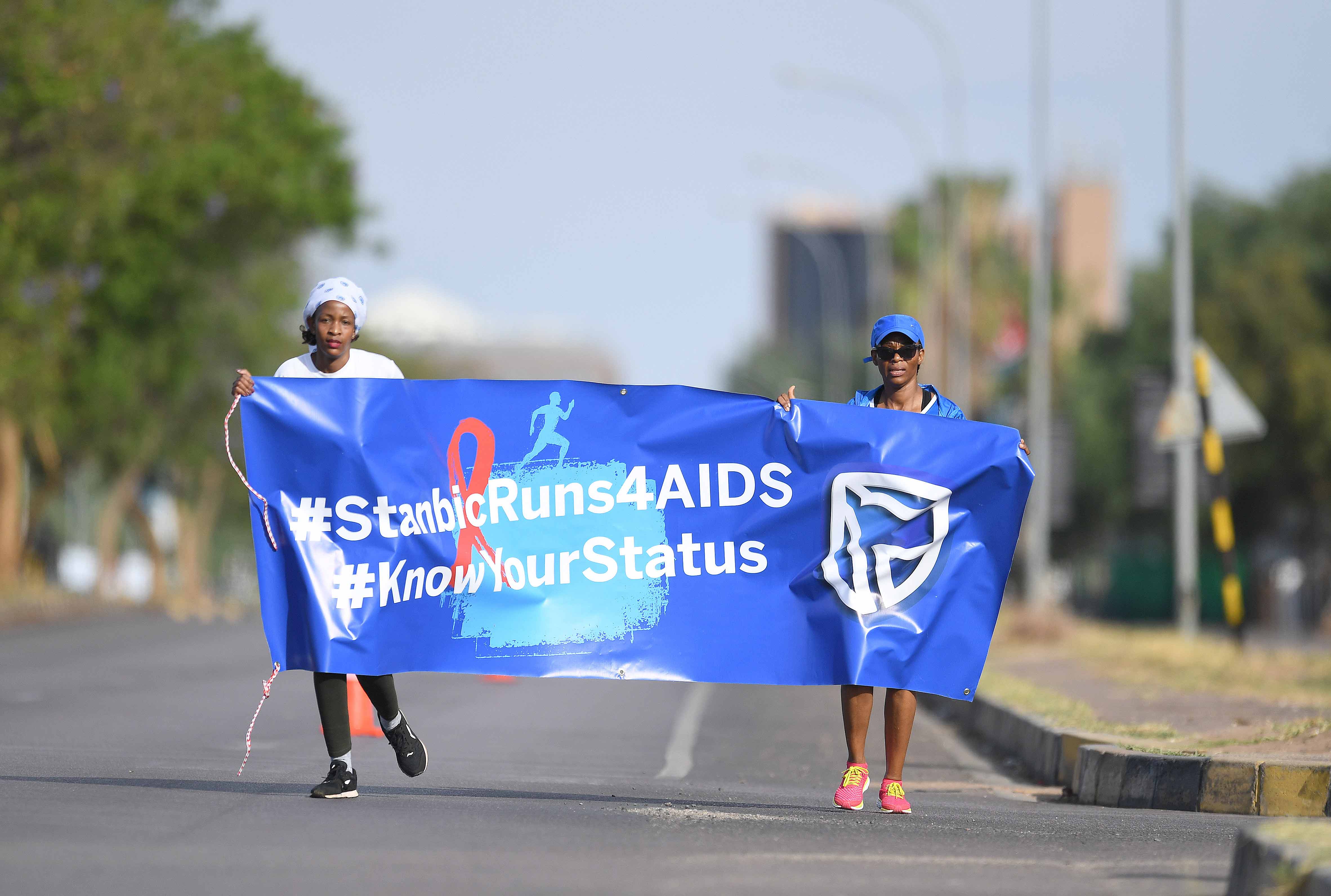“Se Tlogelwa Tsatsing” Initiative Launched to Encourage Batswana to Help Sustain the HIV Response
A team of six resource mobilisation experts from America arrives in Gaborone on 2 May to spend a month in training and consultation with 18 HIV-focused civil society organisations (CSOs) throughout Botswana.
The experts, who have more than 100 years of combined experience, will lead resource mobilisation workshops in Gaborone and Francistown for 100 CSO representatives, and then travel to the CSOs’ sites to spend two days in one-on-one consultation. Their primary objective is to help each CSO develop a resource mobilisation plan to raise funds from within Botswana and reduce dependence on the declining international HIV donor funding.
The visit is part of a new project, Se Tlogelwa Tsatsing, funded by the National AIDS and Health Promotion Agency, The Rotary Foundation, and Rotary District 5470 (Colorado, USA), and developed by seven organisations: Botswana Network of AIDS Service Organisations (BONASO), Botswana Business Coalition on AIDS, Peace Corps Botswana, Rotary Club of Gaborone, Project Concern International (PCI), Bakgatla Bolokang Matshelo, and Stepping Stones International. The project’s mission is to ensure sustainable and adequate funding for Botswana’s HIV-focused CSOs to support the Third National Multisectoral HIV and AIDS Response Strategic Framework (NSF III).
The NSF III calls on CSOs to “play a key role in increasing coverage, efficiency, and sustainability of HIV service delivery in the next five years,” while acknowledging that Botswana must build CSO capacity to “mobilise human, financial, and material resources to support community interventions.”
“Many people think CSOs are fully funded by the Government, but this is not the case,” said Oscar Motsumi, Executive Director at BONASO and Project Chair. “Even when a CSO receives support from international donors or the Government of Botswana, it often does not cover basic expenses like electricity or vehicle repairs.”
Project organisers adopted the slogan, Se Tlogelwa Tsatsing to reflect their commitment to building CSO’s self-reliance and sustainability. The full phrase is “Se tlogelwa tsatsing se ikisa meriting,” which means that when someone is abandoned in the sun (or faces a difficult situation), they must get themselves into the shade (or solve their own problems).
“For many years, international donors have generously supported Botswana’s HIV response,” said Dorothy Tlagae, PCI Country Director and a project organiser. “But this funding is going away, and we find ourselves in the sun. It’s up to us, as Batswana, to provide shade for our CSOs and support their critical work to control the HIV epidemic by 2023 and end AIDS as a public health threat by 2030.”
“Giving Starts Here”
An overarching purpose of the Se Tlogelwa Tsatsing project is to inspire charitable giving among the people of Botswana, which is why project organisers adopted the tagline of, “Giving Starts Here.” Less than one percent of Botswana’s HIV/AIDS funding comes from private sources (individuals, foundations, and corporations), and this project seeks to bring awareness to the need for increased private support. Citing a 2015 study by Charities Aid Foundation Southern Africa1 which found that 94 percent of respondents in a survey in Gauteng Provence, South Africa had donated time, money, or goods in the previous three-months and that their primary reason for doing so was, “I believe I can make a difference,” project organisers have confidence in a similar desire among the people of Botswana.
“Botswana has a long tradition of helping one another and coming together to solve problems. Kgetsi ya tsie e kgona ke go tshwaraganelo,” said Ausi Stella Raphoto, Coordinator of Bakgatla Bolokang Matshelo in Mochudi and a project organiser. “We have drifted away from this in recent years, and we need to find our way back to that spirit. I’m confident that we still have it within ourselves.”
Training Team to Provide Workshops and One-on-One Consultation
The Workshops will span three days each and occur in Gaborone and Francistown. Each participating CSO has been asked to send three representatives: 1) a staff member assigned to resource mobilisation; 2) the board chairman (or his/her representative, if s/he is unavailable); and 3) the CSO’s Peace Corps Volunteer. The main products from the workshops are a resource mobilisation plan and a six-month workplan for its implementation.
For the One-on-One Consultations, each Team member has been paired with three CSOs, based on the CSOs’ needs and VTT members’ areas of expertise. Team members have already made contact with their assigned CSOs. While the Team is in Botswana, Team members will travel to their CSOs’ sites to spend two days in intensive one-on-one consultation with their counterparts.After the Team returns to the US, members will stay in touch with their counterparts for at least three months to troubleshoot and ensure implementation. Peace Corps Volunteers at the CSOs also will assist in implementation.
American Team Brings More than a Century of Combined Resource Mobilisation Experience
The Training Team members hail from Colorado, in the mountains of the western United States. It is headed by by Richard Male of Denver. For more than 40 years, he has trained, coached, and mentored thousands of organisations, including in Kenya, Ethiopia, and South Africa. He has taught undergraduate and graduate level courses in grant writing, fundraising, and resource development at institutions including the State University of New York, Washington University, and the University of Colorado at Denver.
“We are pleased and honoured to be able to assist these quality organizations in gaining greater self-sufficiency in their critical work of eliminating HIV/AIDS in Botswana,” Male said. “Raising funds is the single biggest challenge for civil society organizations to attain. America is one of the world’s leaders in using philanthropy as a tool to help solve societal problems, and we are pleased to assist in this critical mission.”




